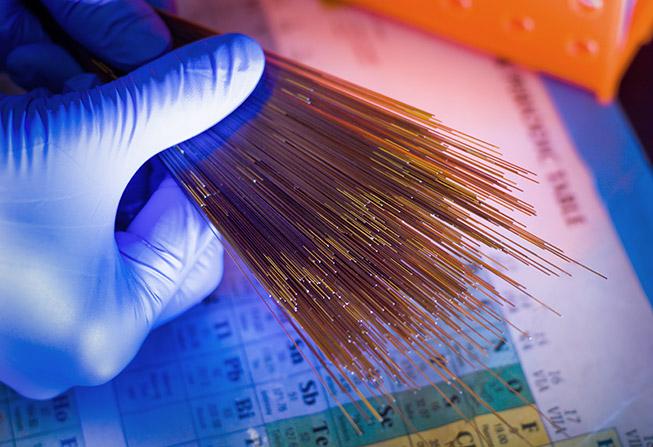Structural Biology

Macromolecules (RNA, protein) perform critical functions in cells. These functions are absolutely dependent on three-dimensional structure. Members of our department conduct studies to determine the three-dimensional structures of cancer-associated molecules, how these structures are formed, and how structural alterations affect the functions of molecules. In particular, we study how altered structures contribute to the pathophysiology of cancer and use this structural knowledge to design therapeutics.
- The Eck Lab specializes in X-ray crystallography of kinases. The lab has determined the structure of patient-derived EGFR mutants to propose mechanisms of tumor response to therapy and drug resistance.
- The Marto Lab uses mass spectrometry to interrogate the proteome. The goal is to understand how genomic alterations, environmental insults, and chemical probes impact proteins, biochemical complexes, and signaling pathways, and how these perturbations manifest en masse as phenotypic or disease signatures. The lab performs hypothesis-guided studies as well as quantitative, proteome-scale screens that yield data-driven entry points for further investigation.
See also Blais Proteomics Center. - The Shih Lab constructs nanoscale objects and nanomechanical devices based on DNA molecules. He uses these to interrogate and modulate the operation of cells.
- The Blacklow Lab focuses on uncovering the molecular logic of biological signaling pathways in normal and pathophysiologic states, and on harnessing these findings for the development of molecularly targeted therapies. Within this broad area, current studies emphasize structure-function correlates in normal and oncogenic signaling, with a major focus on transmembrane signaling and Notch signal transduction.
- The Fischer Lab studies the pathways and protein complexes at the crossroads of fundamental cellular disposal systems using X-ray crystallography and cryo-electron microscopy, and designs molecules that target designated proteins for degradation. The Fischer lab has pioneered targeted protein degradation as a new therapeutic modality. Learn about the Center for Protein Degradation.
- The Arthanari Lab is developing nuclear magnetic resonance methods to investigate the atomic level structures of protein surfaces that mediate molecular interactions important in disease pathways.
- The Polizzi Lab aims to learn the rules of protein-ligand binding through the lens of de novo protein design. In de novo design, a protein's structure and sequence are computed from first principles. The Polizzi Lab develops computational design methods that learn from protein structure and tests these algorithms by making new ligand-binding proteins in the lab.